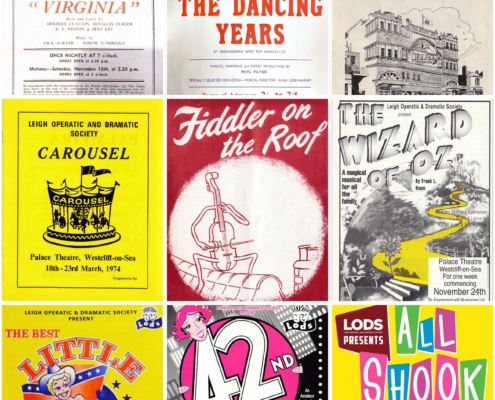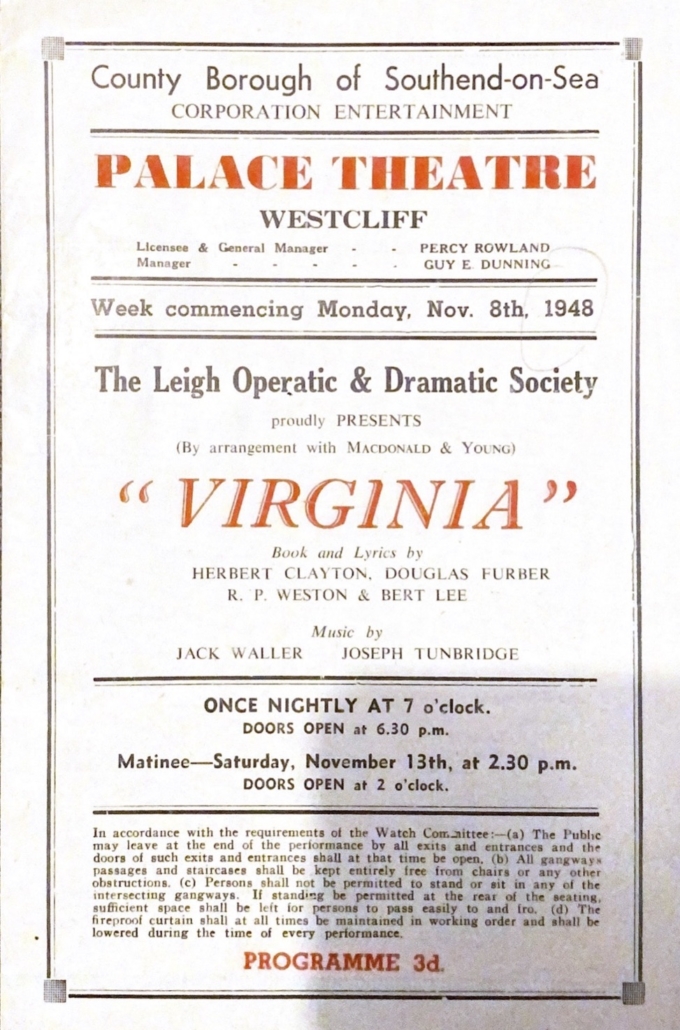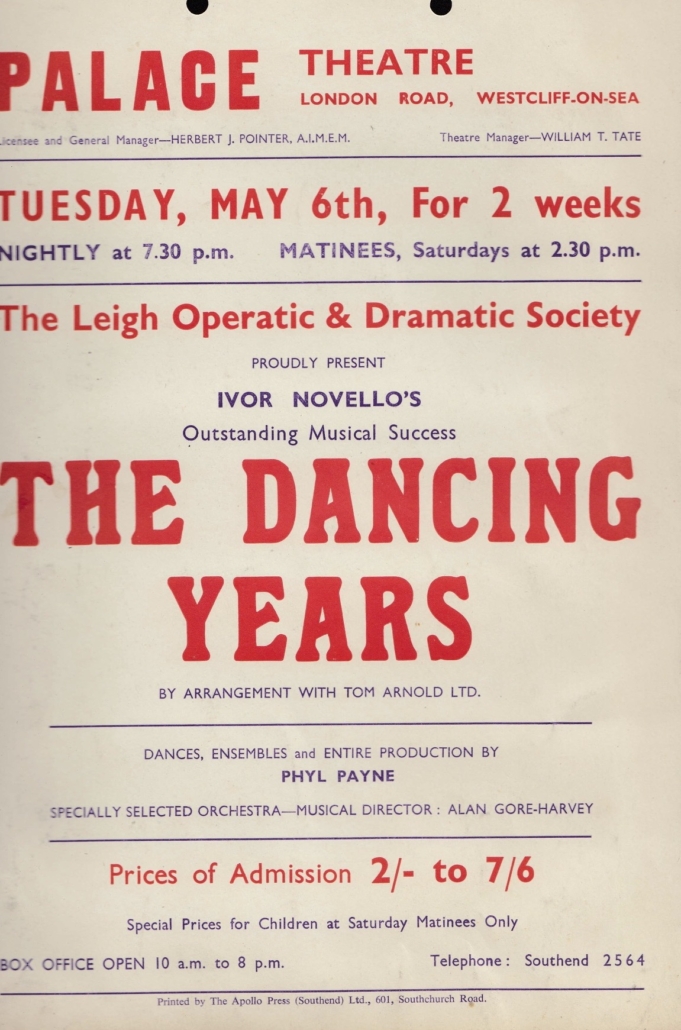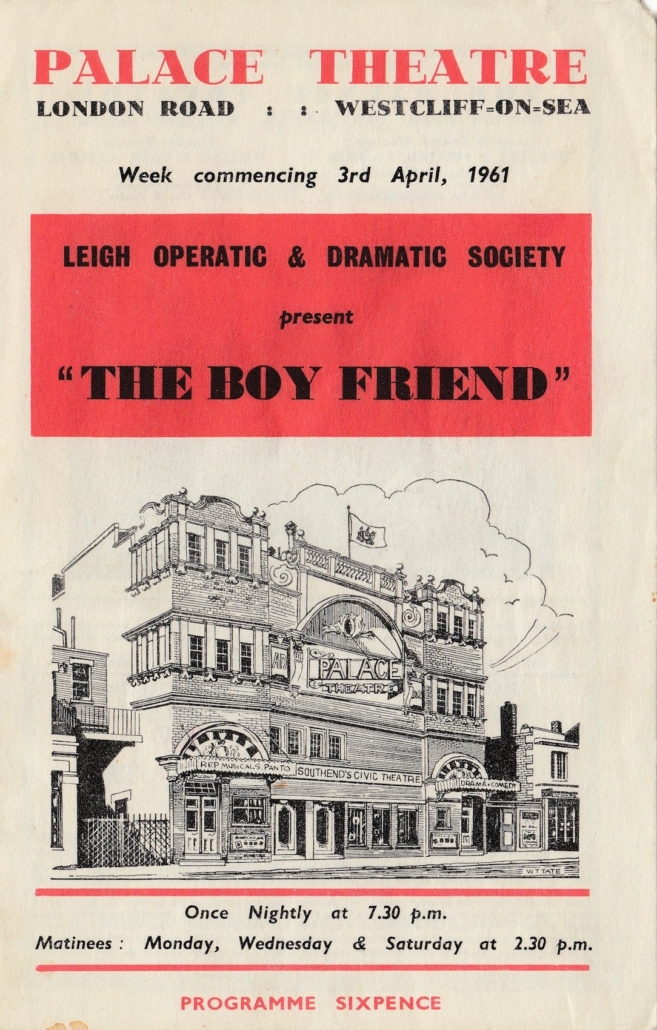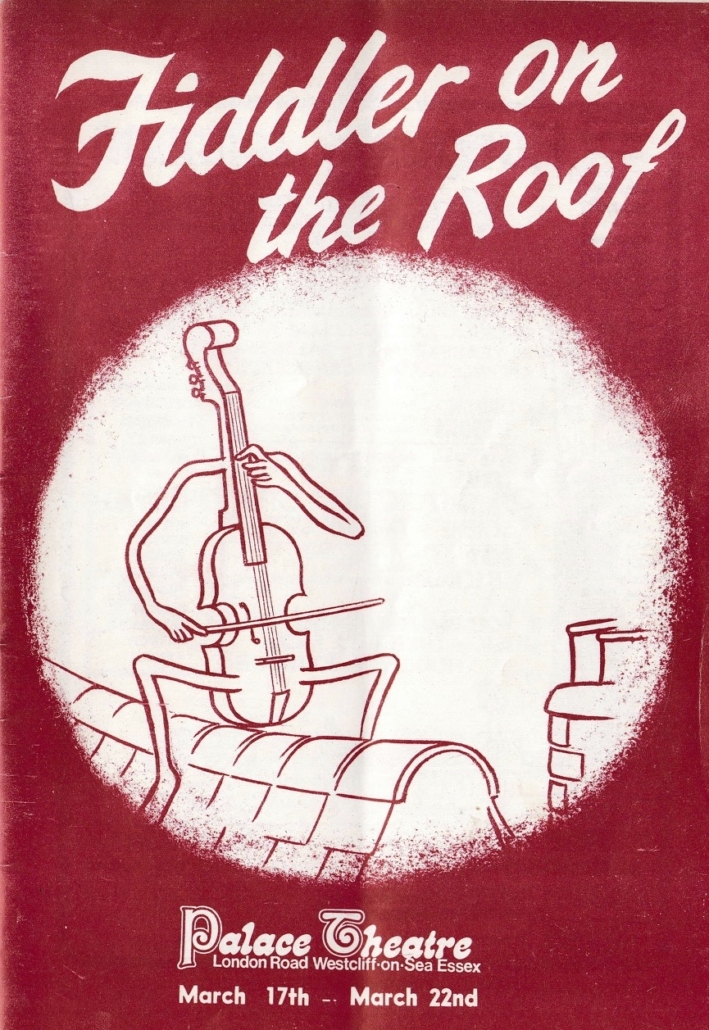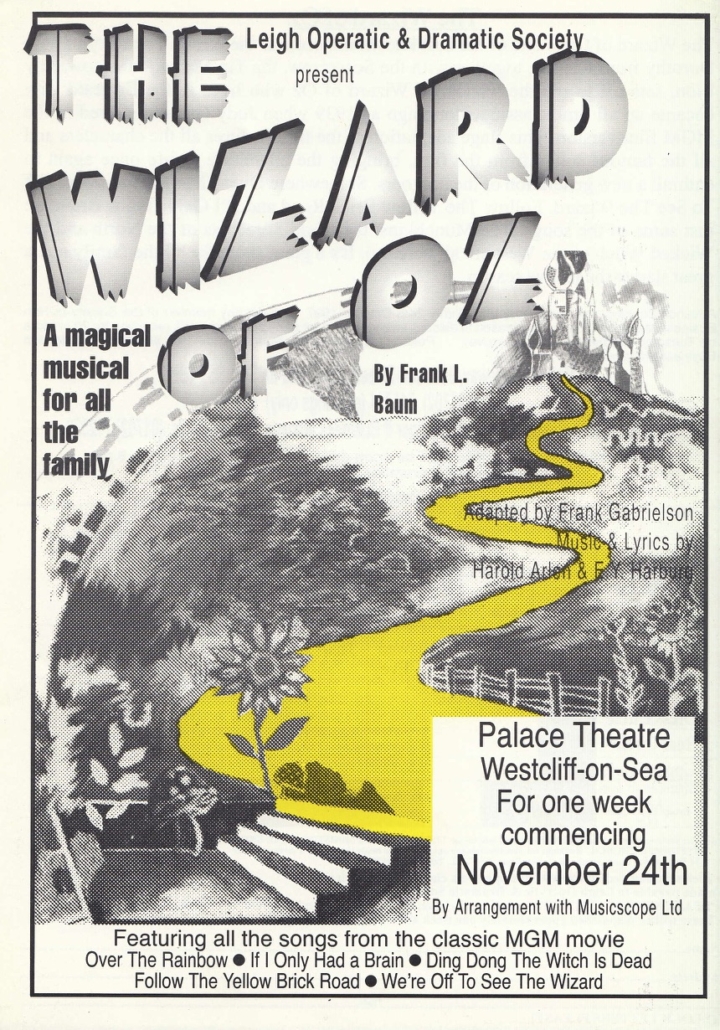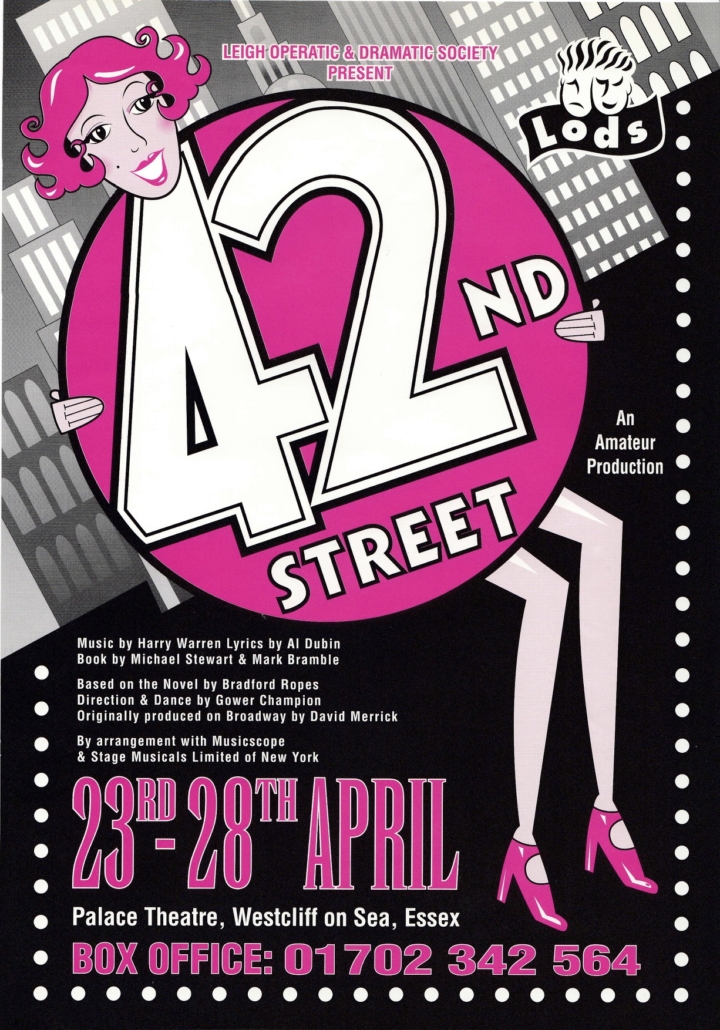TBT | Programme Archive
Since being founded in 1917, Leigh Operatic and Dramatic Society has witnessed a number of profound events to happen throughout human history. Between wars, breakthroughs in science, progression in human rights and technological developments, the society has gone from strength to strength whilst the world around has certainly progressed on.
Join us as we embark on our new Throwback Thursday feature, where we take a look through our archives, looking at how the LODS society has adapted, developed and evolved with the changing times.
Today, we present to you a showcase of programmes from our archives, as we discuss what was happening around the globe the year that the respective shows were rehearsed and performed by LODS.
Virginia – Week commencing Monday 8th Nov. 1948
Following the end of World War 2, Leigh Operatic and Dramatic Society came back to the Palace Theatre stage with musical comedy Virgina, whose title refers to both the heroine’s name and the setting for Act II. Directed by Phyl Payne, with Edward Flecher as Musical Director, Virginia held a strong 76-member cast.
In the year 1948, King George VI was Monarch and Clement Attlee Prime Minister. The NHS began functioning, giving the right to universal healthcare, free at the point of use which continues in Britain today. The Olympic Games were held in London, which Great Britain and Northern Ireland winning 3 gold, 14 silver and 6 bronze medals during the event. British Railways was created after the government nationalised the railway industry, similarly to the electricity supply industry and the gas industry. Rowntree’s introduced Polo mint sweets and Burma gained independence from the United Kingdom. Princess Elizabeth gave birth to a son, christened High Royal Highness Charles Philip Arthur George of Edinburgh.
The Dancing Years – Tuesday 6th May 1952
Directed and choreographed by Phyl Payne, with Alan Gore-Harvey as Musical Director, LODS presented The Dancing Years for two weeks in May 1952. The musical, which was first produced at London’s Theatre Royal, Drury Lane, follows the life of a penniless Jewish composer and his love for two women of different social classes, set in Vienna, against the background of Nazi persecution.
In the year 1952, King George VI died at Sandringham House aged 56 from lung cancer. His daughter, Princess Elizabeth, Duchess of Edinburgh, ascended to the throne as Queen Elizabeth II. Sooty, Harry Corbett’s glove puppet bear, first appeared on the BBC and a one shilling charge was introduced for prescription drugs dispensed under the NHS. Whilst the citizens of London turn out in force to say goodbye to the last of the original trams to run in London, the compulsory identity cards, issued during World War II, are abolished. Agatha Christie’s play The Mousetrap starts its run at the New Ambassadors Theatre in London – it is still running today nearly 70 years later, after transferring next door to St Martin’s Theatre in 1974. The first TV detector Van is commissioned in the UK, as the beginning of a clampdown on the estimated 150,000 households who were watching TV illegally without a licence. The Great Smog blankets London, causing transport chaos and around 4,000 deaths.
The Boy Friend – Monday 3rd April until Saturday 8th April 1961
During the Easter holiday of 1961, LODS presented The Boy Friend by Sandy Wilson; directed by Phyl Payne with Cecil Barker as Musical Director. Set in the French Riviera, the musical comedy was written in the fifties in ape of the earlier ‘Roaring Twenties’, when days were lighter-hearted and more disarming.
The original 1954 London production ran for 2,078 performances, making it briefly the third-longest running musical in West End and Broadway history. It also marked Julie Andrews’ American stage debut.
In the year 1961, Queen Elizabeth II was Monarch and Harold Macmillan Prime Minister. The farthing coin ceases to be legal tender, after being used since the thirteenth century, along with black and white £5 notes. Betting shops become legal under the terms of the Betting and Games Act 1960, an act which also permitted the operation of commercial bingo halls. Agatha Christie’s The Pale Horse and Ian Fleming’s James Bond Thunderball novels are released. The Suicide Act of 1961 decriminalises acts of, or attempts of suicide, in England and Wales. The Government unveiled new ‘panda’ crossings, due to the increased volume of traffic – by 1967 this crossing was removed almost over night, seemingly as a matter of urgency due to concerns for the Ministry of Transport. Barclays became Britain’s first bank with an in-house computing centre.
Fiddler on the Roof – March 17th to March 22nd 1980
Fiddler on the Roof is a musical set in the Pale of Settlement of Imperial Russia, around 1905. The storyline follows the life among the Jewish community of pre-revolutionary Russia. A poor milkman, determined to find good husbands for his five daughters, consults the traditional matchmaker – and also has a word with God. Its original Broadway production (1964) was nominated for ten Tony Awards, winning nine. In 1972, the show won a special Tony on becoming the longest-running musical in Broadway history.
Margaret Thatcher was Prime Minister, during a time when unemployment stood at a two-year high of more than 2 million. Inflation had risen to 21.8%. John Lennon, pop singer-songwriter and guitarist (The Beatles) was shot dead in New York. Zimbabwe became independent from the United Kingdom. The pre-decimal sixpence coin was withdrawn from circulation. Alexandra Palace is gutted by fire whilst Miners threatened to strike, demanding a 37% pay increase. Great Britain and Northern Ireland won 5 gold, 7 silver and 9 bronze medals in the Moscow Olympics. The 1980 Housing Act came into action, giving council house tenants of three years’ standing the right to buy their home from local council at a discount price. Alton Towers is opened as a theme park.
The Wizard of Oz – Week commencing 24th November 1997
The Wizard of Oz musical was written and based loosely on L. Frank Baum’s 1900 novel and the 1939 film adaptation. David Badger and Gena Badger directed and choreographed the LODS performance respectively, with Terry Steel as Musical Director.
1997 was a seminal year in history- The Labour Party won the general election with a landslide victory and ending its 18 years in opposition, seeing Tony Blair MP appointed as Prime Minister. Diana, Princess of Wales, was killed in a high-speed car crash in Paris. The first Harry Potter book was published and the Spice Girls were the biggest girl group in the world. A new style 50p was introduced and the UK won Eurovision for the last time to this date. The Titanic heartthrob film was released and the Teletubbies were unleashed. The UK transferred the sovereignty of Hong Kong to the People’s Republic of China, as the 99 years lease on the territory formally ended.
42nd Street – 23rd – 28th April 2001
Sallie Warrington directed and choreographed the Leigh Operatic and Dramatic society version of this wonderful musical. Originally produced in London in 1984, 42nd Street won an Olivier Award for Best Musical. The story is based around an ailing Broadway director who falls on hard times with both his health and finances- he returns to produce one final musical before he retires. His lead actress, torn between two loves, is injured and must be replaced by a novice.
Labour attained a second landslide election victory – Tony Blair remains Prime Minister. Among new entrants to parliament is 34-year old future conservative Prime Minister David Cameron. Islamic extremists hijack four commercial airlines in the United States of America, two of which were flown into the World Trade Centre; it is estimated 2,977 lives were lost. Peter Bray completes the first crossing of the Atlantic Ocean in a kayak. Roger Hargreave’s children’s book Mr. Cheeky celebrates the 30th birthday of the Mr. Men series. The Eden Project opens to the public in Cornwall. The Harry Potter and the Philospher’s Stone film debuts in London. One million children in over 3,000 schools participate in an experiment to discover if it is possible to create earthquakes by all jumping off chairs at the same time.

